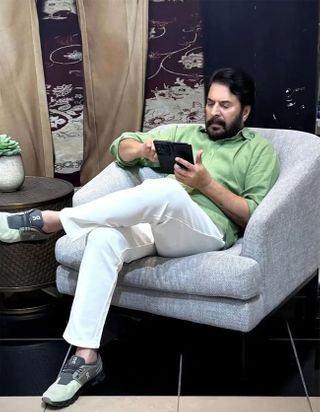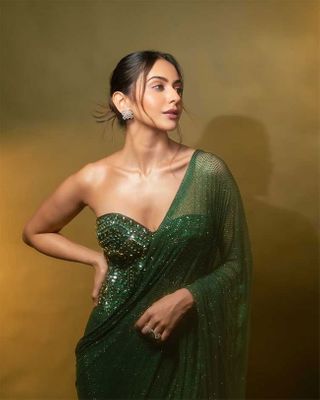
Boyhood Movie Review
In the changing world of cinema today, too many films (and their filmmakers) literally demand your respect, simply because in their mind, they feel they've done something, anything that's off-beat. Only a handful of those films actually deserve the respect. Of them, some deserve it for their ballsy concept, some due to their gutsy execution, and some simply for their no-holds-barred attitude to filmmaking. Boyhood is one of those rarest of rare films that deserve it on account of all these factors.
When I heard about Boyhood a few years ago, it made me all excited and worried at the same time. Taking 12 years to make a film, shooting portions a few months every year, it was something that hadn't been done before in cinema in any part of the world. But 12 years is a long period, so long it's impossible for you to foresee everything that can happen. Perspectives could change, people could fall out of love with the project, there could be tonal inconsistencies, and tragedies happen every single day. Plus, when you're so close to something for such a long period of time, it's easy to lose your objectivity and sense of judgment.
But I also knew that the film was in the best possible hands. Boyhood is writer/director Richard Linklater's labor of love, kind of like a child that was borne by him and cradled, caressed, cared for and cajoled into the little beauty that it is today.
The "boy" in Boyhood is Mason, an ordinary, innocuous, unassuming child of 6 years who lives with his mother and sister. You wouldn't be able to tell him apart from another child on the street, which is exactly the film's intention. It tells the ordinary story of an ordinary child, a story that could well be yours. Across the 12 years that the film covers, Mason goes through every emotion and phase that you and your children have/will experience.
Mason is the physical embodiment of every complex thought, every emotion, every dilemma you've ever experienced. His difficulty in dealing with his parents' separation, dislike towards abusive stepfathers (plural), peer pressure of fitting in, teenage attraction, substance abuse, the feeling of getting tied down, the search for meaning in life, his first heartbreak, and the taste of sweet freedom, he goes through it all. And Ellar Coltrane is an absolute revelation in the role of the conflicted boy who grows up to become a conflicted man. He is equally at ease playing the little boy who asks his father if elves and real magic exist in the world, and the grown teenager who asks his father is he's kissed his new girlfriend. The intensity of his rants about the superficial nature of the world and the people living in it make you want to jump into the conversation (to support him, of course).
Linklater captures every small moment of a child's life, sparing no details. From a young Mason listening to his mother read the new Harry Potter book to him at bedtime, and talking to his father about collecting snake vertebrae; to a slightly older Mason listening to country music with his father, going camping with him and discussing Star Wars; to a teenage Mason discussing girls and contraception with him, and getting his first beer; every chapter of his life feels authentic and straight out of reality, like overhearing people conversing at a restaurant.
No matter how much attention you pay to details, you can never truly capture the nuances and pop cultural phenomenons of the years passed. But Boyhood, having been shot every year for 12 years, has the distinct advantage of having been present in the past. Whether it's the clothing, the music, the craze surrounding Harry Potter, the reading of the Texas pledge in Texan schools, the Obama vs McCain election, or life in general, every little detail is captured by Linklater's camera, kind of like a video diary or message for people watching the film in the future.
One department where Richard Linklater has always been miles ahead of his competition is in developing characters. He not only gives the characters a back story and scenes to participate in, he actually gives them a brain, the chance to make their choices and mistakes. The leads in his films, including Mason, are never holier than thou saints or fantastic human beings. They are just people who make good or bad decisions. Mason's stepfathers are probably the most unlikeable people in the film, but they're never portrayed as evil or deliberately hurtful. They're just victims of the tragedy called life.
The character of Mason's (biological) father is played by Ethan Hawke, a frequent Linklater collaborator, and the lead actor and co-writer of his The Before Trilogy. His character remains much of a mystery for the first half of the film, fleeting in and out of proceedings without actually revealing much about himself, apart from him being a Democrat at heart. It's in the second half that Mason Sr. really flourishes. Ethan Hawke, being a hawk of an actor, swoops in and makes a lot out of what he's given, and is earnest and thoroughly charming as the fun dad. He lights up the screen with his presence and there's no way you can possibly take your eyes off of him.
Patricia Arquette, as Mason's mother, is probably the most screwed up character in the film. She has the most terrible taste in men, with three ex-husbands and an unsuccessful relationship. Or as Mason puts it, "a parade of drunken idiots". But Arquette owns the ills of her character and plays her part with flourish. Lorelei Linklater, daughter of Richard Linklater, plays Mason's sister and gives an arresting performance as a young woman who has her own shit to deal with.
The film manages to hit every single Linklater trademark. It's been beautifully shot by Lee Daniel and Shane F. Kelly, in a manner that you feel like you're a silent bystander watching all the people go about their lives. There's so much talk, and the dialogues by Linklater are natural and intelligent as ever. They never seem like they've been shoved down an actor's throat, and they always give you something to think about. Linklater even does an extended uncut dialogue sequence à la the Before films, kind of a wink wink moment for his dedicated followers. But above all, the film has a lot of heart, and it manages to show it without being emotionally manipulative.
Boyhood isn't just entertaining cinema. It's also an enriching experience. Each painstaking second spent on the film over 12 years is visible in every frame, every sequence, every dialogue, even in the fantastically compiled soundtrack that's a masterpiece on its own. You leave the theater believing you're a smarter and a better person. While that illusion won't last very long, the experience of watching Boyhood will remain with you for a very long time. If that isn't enough to make you watch this film (and Linklater's The Before Trilogy), I don't know what is.










